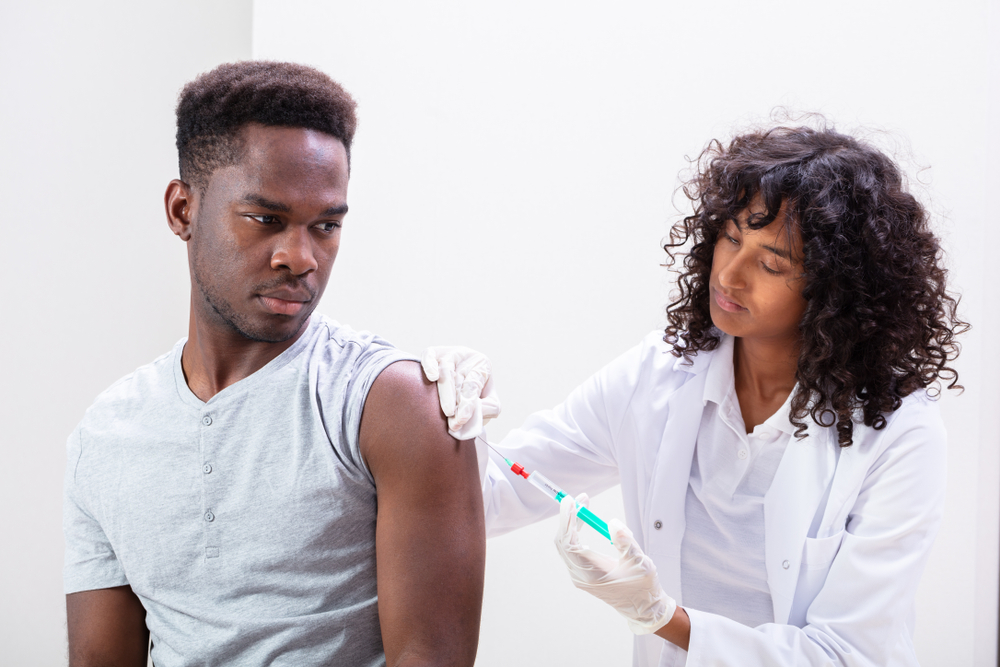Sexually transmitted diseases (STDs) are infections that can be passed from one person to another through sexual contact. While some STDs may not cause noticeable symptoms, early detection and treatment are crucial to prevent complications and protect your sexual partners. If you have regular sex partners, getting regular STD testing is an essential part of maintaining sexual health.
Understanding the risks
- Multiple partners: Having multiple sexual partners increases your risk of contracting an STD. The more partners you have, the greater the chance of encountering someone who is unknowingly infected.
- Unprotected sex: Using condoms and other barrier methods can significantly reduce the risk of STD transmission, but they are not foolproof. Even with some forms of protection, there’s still a possibility of contracting certain STDs.
- Silent spread: Many STDs, such as chlamydia and gonorrhea, can be present without causing any noticeable symptoms. Regular testing is the only way to ensure early detection and treatment.
Benefits of regular STD testing
- Early detection and treatment: Early diagnosis and treatment of STDs can prevent complications like pelvic inflammatory disease, infertility, and even certain cancers.
- Protecting your partners: By getting tested regularly, you are taking steps to prevent the spread of STDs to your sexual partners.
- Peace of mind: Knowing your STD status can give you peace of mind and allow you to make informed decisions about your sexual health.
What tests are recommended?
The specific tests recommended will depend on your risk factors and sexual history. However, some standard tests for sexually active individuals include:
- Chlamydia and Gonorrhea: These are the most common bacterial STDs and are often tested together. A urine test or swab from the genitals is typically used for diagnosis.
- Human Immunodeficiency Virus (HIV): HIV is the virus that causes AIDS. A blood test is used to detect HIV.
- Syphilis: Syphilis is a bacterial infection that can cause serious health problems if left untreated. A blood test is used to diagnose syphilis.
- Hepatitis B and C: These are viruses that can affect the liver. Blood tests are used to diagnose hepatitis B and C.
How often should you get tested?
The testing frequency will depend on several factors, including the number of sexual partners you have, your use of protection, and your overall risk profile. Here’s a general guideline:
- High-risk individuals: If you have multiple sexual partners or are in a non-monogamous relationship, you should be tested at least every three months.
- Lower-risk individuals: If you have a single, monogamous partner who is also tested regularly, you may be able to get tested less frequently, perhaps annually or every other year. However, discussing this with your doctor to determine the appropriate testing schedule for you is essential.
Where to get tested
There are several options for getting tested for STDs:
- Doctor’s office: Your primary care physician or a gynecologist can perform STD testing.
- Planned Parenthood: Planned Parenthood health centers offer confidential and affordable STD testing.
- Public health clinics: Many local health departments offer free or low-cost STD testing.
- At-home testing kits: While at-home testing kits are available for some STDs, these may not be as comprehensive as tests performed by a healthcare professional. Confirming any positive results from an at-home test with a doctor is essential.
Talking to your partner(s) about testing:
Open communication with your sexual partner(s) is crucial for maintaining sexual health. Here are some tips for talking to your partner(s) about STD testing:
- Could you explain the importance? Discuss the benefits of regular testing and why you must be tested.
- You can choose a time to talk: Pick a time to have a private and uninterrupted conversation.
- Be respectful and understanding: Approach the conversation respectfully and understand any concerns your partner may have.
Maintaining sexual health:
Regular STD testing is an essential part of maintaining sexual health. By getting tested regularly, protecting yourself with condoms, and communicating openly with your partner(s), you can reduce your risk of contracting STDs and enjoy a healthy sex life.
Additional considerations:
- Vaccinations: Certain vaccines, such as hepatitis B and HPV (human papillomavirus), can help protect against STDs.
- Safe sex practices: Practicing safe sex by using condoms and other barrier methods can significantly reduce the risk of STD transmission.
- Honesty and Transparency: Essential in any sexual relationship. Be honest with your partners about your sexual history and any potential risks.
Remember:
- STD testing is not a judgment; it’s a proactive approach to protecting your health and the health of your partners.
- Early detection and treatment of STDs lead to better health outcomes.
- There are many resources available to help you get tested and maintain sexual health.
Taking charge of your sexual health:
By taking an active role in your sexual health, you can make informed decisions, reduce your risk of STDs, and enjoy a more fulfilling sexual life. Regular STD testing is a simple and effective way to take control of your health and protect yourself and your partners.
For more information:
- The Centers for Disease Control and Prevention (CDC): https://wwwnc.cdc.gov/travel/yellowbook/2024/posttravel-evaluation/sexually-transmitted-infections
- Planned Parenthood: https://www.plannedparenthood.org/
- The National Coalition for STD Prevention: https://www.ncsddc.org/
By following these tips and staying informed, you can navigate your sexual health with confidence and enjoy a healthy and fulfilling sex life.
This story was created using AI technology.















